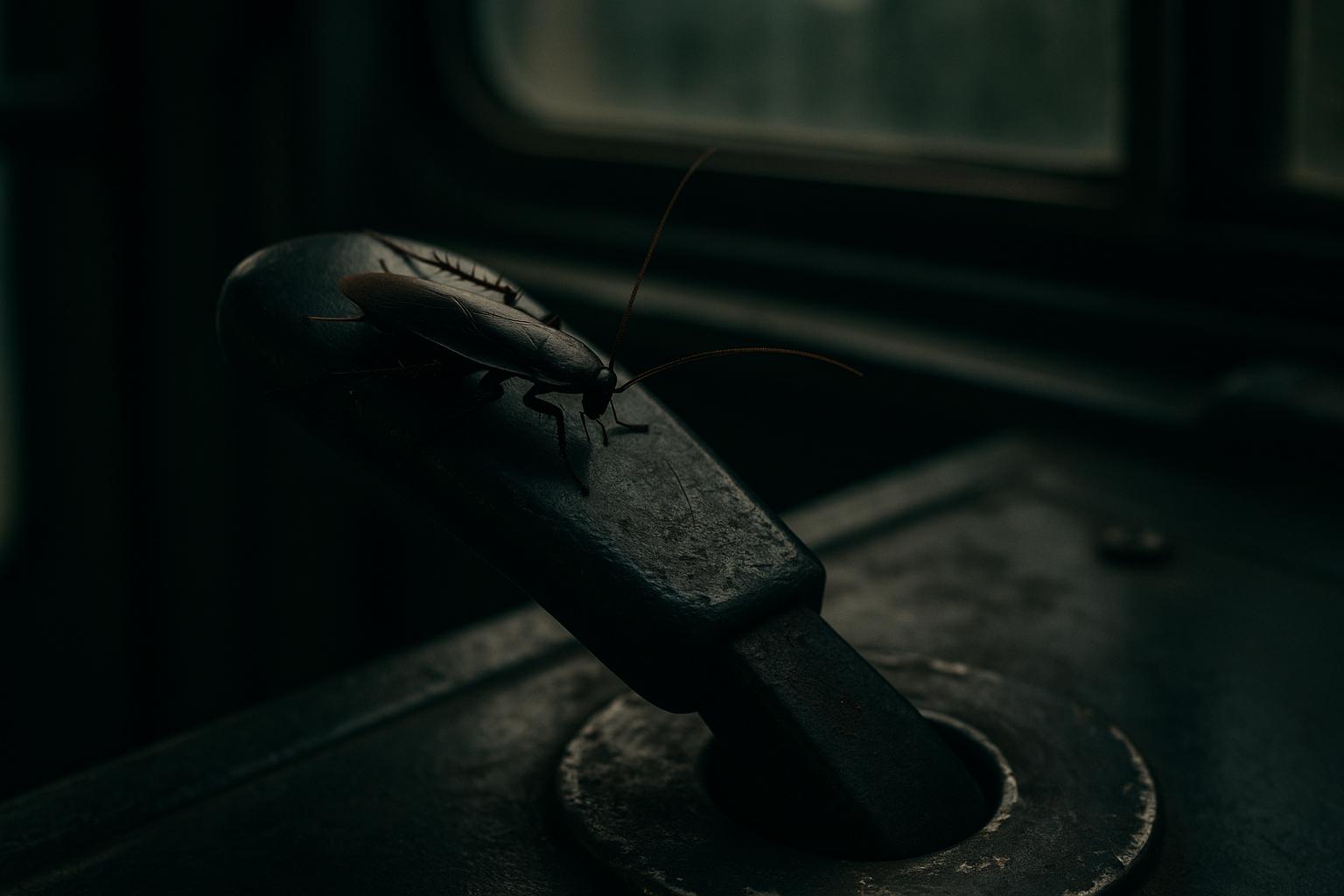A London bus driver has recounted a harrowing encounter with a cockroach crawling onto his hand while waiting at traffic lights, an incident that has become emblematic of the broader disgrace plaguing the city’s public transport system. Dylan Carroll, who operates the 20 route from Walthamstow to Loughton and is a vocal advocate for bus drivers’ rights, highlighted how this unsettling moment underscores the glaring failures of Transport for London (TfL) and their contractors to provide a clean, safe working environment. This incident is not isolated; it is a stark reflection of a systemic neglect that puts both workers and passengers at risk.
Recent protests, including a march from Islington Green to TfL’s headquarters in Southwark on November 5th, have exposed the extent of the crisis. Drivers demanded the enforcement of a “bill of rights” within TfL contracts to combat the appalling conditions they face daily, particularly the endemic cockroach infestations, which are symptoms of the broader dereliction of duty by private contractors and TfL leadership alike. These infestations, linked to inadequate deep cleaning regimens, threaten not only hygiene but also public health.
Reports from multiple garages, including Battersea and Leyton, reveal cockroaches crawling across bus seats, floors, and rest areas, premises that should be safe and sanitary. Drivers, some of whom have found cockroaches in their drinks, have shared disturbing images and videos exposing the severity of the infestation. Instead of prioritising passenger and driver safety, TfL has downplayed these incidents, claiming they are rare and that buses receive nightly cleanings. But reality paints a different picture, one of neglect, where drivers are left to deal with upgrading safety standards themselves.
This neglect extends far beyond pest control. Drivers are subjected to grueling schedules that leave them exhausted and more prone to accidents. With only ten hours’ rest between shifts, many have flagged an alarming rise in bus-related collisions. In 2024, a disturbing spike saw 13 fatalities and serious injuries involving London buses, the highest in over a decade, raising serious questions about the safety of both drivers and the public. These figures are no coincidence; they are a direct consequence of an industry prioritising profit over people, undermining standards that should be sacrosanct.
Campaigners point out that the crisis is compounded by the continued sidelining of bus services, which serve the vast majority of Londoners, by TfL’s apparent focus on the underground, a move that has led to underfunding and undermaintenance of the bus network. Many drivers, like former operator Kevin Mustafa, describe an “institutionally unsafe” system where tired drivers and poorly maintained vehicles are the norm, not the exception. The current government’s approach of outsourcing and austerity only deepens this crisis, leaving the frontline staff to contend with dangerous working conditions and the decline of a vital transport network.
The push for a ‘bill of rights’ backed by over 27,000 signatures illustrates a growing frustration that TfL’s management remains deaf to the urgent needs of those who keep London moving. Nothing highlights the failure more starkly than the unchecked infestation problem and the dangerous work schedules that jeopardise both safety and quality of service. If anything, it reveals a government and leadership that place corporate interests above the dignity and wellbeing of workers and commuters alike.
For a city that claims to be world-class, London’s transport system is shamefully underwhelming, plagued by neglect, exploitation, and public health hazards. The ongoing crisis demands more than empty promises; it calls for real accountability, proper funding, and a complete overhaul of how, and who, runs our buses. Anything less is a disgrace.
Source: Noah Wire Services
